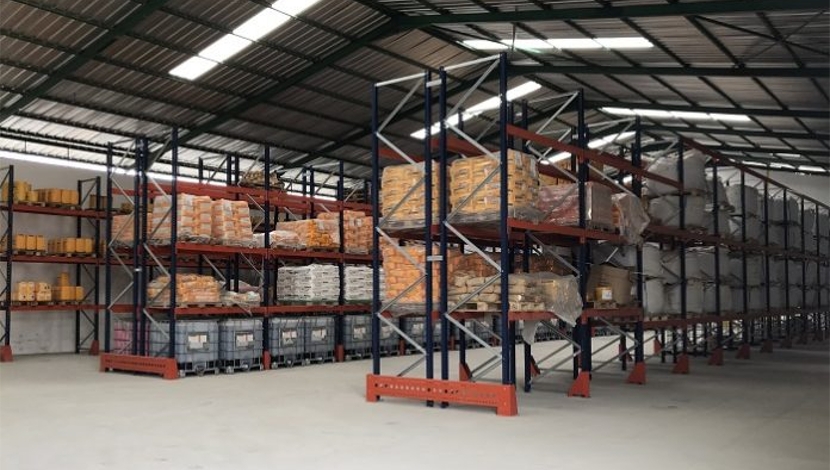
In a recent article, Bryan Perrie, MD of the Concrete Institute said: “There is growing concern worldwide about wastage of materials such as concrete, wood, gypsum, metals, bricks, glass, plastics, and salvaged
building components. Yet there is tremendous potential to recycle many elements of the construction cycle.”
Terraforce’s concrete retaining wall and erosion control systems can be regarded as a sustainable product. It is a hollow-core and closed-faced system which, once installed, allows for maximum water absorption and plant growth.
In the Western Cape, Klapmuts Concrete and Cape Retaining Systems, Terraforce concrete retaining block manufacturers and contractors, are also committed reducing their carbon footprint. Like most Terraforce manufacturers locally and abroad, Klapmuts acquired their own crusher to re-use all broken and reject products.
Says Johan van Wyk, CEO of Klapmuts Concrete: “We recycle all reject blocks as well as blocks that are damaged during the splitting of rock-faced blocks. We accept “clean” building rubble (no timber, plastic, metal, etc.) from builders and the rejects from another block manufacturer in our area.
To ensure that the rubble can be used in our products without comprising quality it is graded by a SANAS-accredited laboratory.”
Approached in 2013 by Nelson Glass, a major processor of plate glass in Cape Town, Van Wyk was immediately interested in their proposal to use crushed, recycled glass in their concrete block mixes.
Keith Clarke, manager of Re-Use Glass, Nelson Glass’ new department dedicated to recycling glass debris and cut-offs, explains: “The idea of recycling glass was conceived in 2012, due to mounting concerns over wastage and the cost of dumping glass cut-offs at landfill sites by glass companies. Subsequently I was commissioned to conduct a feasibility study over nine months to establish the viability of such a plant.”
After two years of planning and red tape Nelson Glass invested in a crushing plant. Van Wyk said: “As Nelson Glass cannot use the crushed glass themselves, they were looking for possible buyers of the product, and we saw an opportunity to be involved.”
At Nelson Glass, the raw material (glass off-cuts or broken glass) is collected from most major processing companies. This is done by placing waste skips at companies’ premises which, when full, are collected by Nelson Glass and taken to the recycling facility.
The broken glass is recycled through a crushing and screening process which converts it into reusable chips or sand that can be supplied to the building industry to manufacture concrete products, replacing virgin sand and stone.
Klapmuts Concrete began working with crushed glass late in 2014. Crushed glass samples were sieved and compared with regular fine aggregate; blocks were produced and compression tests done. Surprisingly the crushed glass particles do not have sharp edges and can be handled exactly the same way as normal aggregates.”
From these results and studies done in the USA, it was determined that glass can be used in masonry products, but compressive strength decreases as the percentage of glass increases. Thus it was decided to use crushed glass in limited quantities in almost all Klapmuts Concrete’s products.
Klapmuts currently uses two products – a coarse product that compares favourably with standard 6-mm stone and a dust very like crusher dust. Says Van Wyk: “The mix designs were adjusted to accommodate these products without jeopardizing the strength of the blocks. The finishes of the products are exactly the same as with normal aggregates except that the rock-face blocks now have a slight twinkle on the rough face. “
The bottom line is that glass waste that would have ended up in a landfill as a hazardous and non-degradable by-product of the glass industry is transformed into a useful, eco-friendly substitute, reducing the carbon footprint of both Klapmuts Concrete and Nelson Glass .respectively.
More information from Klapmuts Concrete, Tel:+27(0)21 875 5151 /www.klapmutsconcrete.co.za





